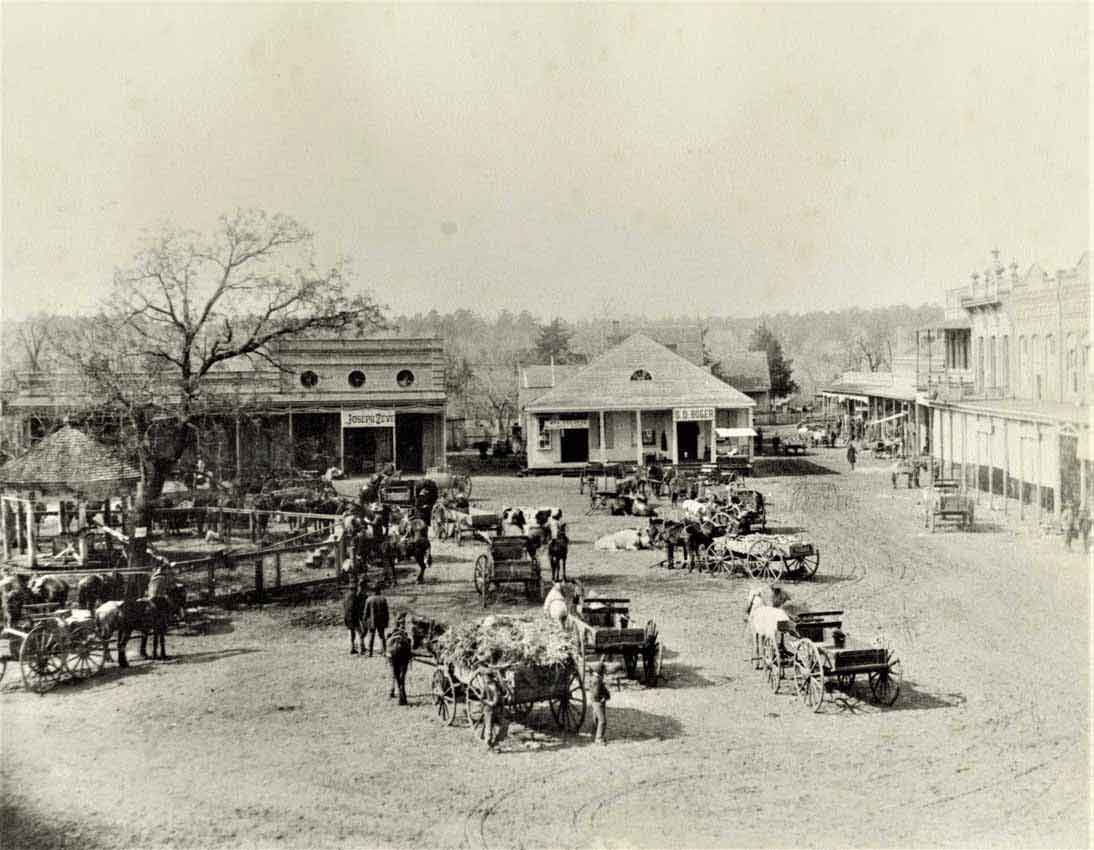It all started with a mule.
I’m going to take a chance and exercise a little literary license by posting this story on a blog dedicated to the American West, and I feel justified in doing this for two reasons: First, this story takes place in 1912 during the tail-end of what is considered the time period that we associate with the west (usually from the end of the Civil War to the beginning of WWI). Second, whereas the “west” is generally considered to be located west of the Mississippi, this story takes place just inside that border, about eighty miles west of the Mississippi River in the east Texas town of Nacogdoches.
But before we get to the part with the mule and what exactly happened in Nacogdoches in 1912, we need to back up a little and get some context to the story and introduce our main character, Julius.
Julius was born on a chilly day in October 1890 in a room above a butcher shop in the poor Yorkville section of New York City’s Upper East Side. His parents, Sam and Minnie, were Jewish immigrants from Germany. Sam and Minnie already had two sons (a third had died of influenza at the age of seven months) and, by 1901, would add two more sons to the family.

By all accounts, Julius had a happy childhood and dreamed of becoming a doctor someday. However, the family was poor. His father, Sam, worked as a tailor, but apparently, he was not a very good one. Julius wound up dropping out of school at the age of twelve to help support the family. He worked at several different jobs, but his big break came when his mother realized what a pleasant singing voice he had. Actually, all of Minnie’s boys were musically inclined. Her oldest son, Leonard, played the piano and her second oldest son, Adolph, eventually learned to play six different instruments. Minnie was ambitious for her sons and came up with an idea. She had a brother who worked in vaudeville. Maybe she could use that connection to get her boys on the stage.
On July 16, 1905, 14-year-old Julius took to the stage as part of the Le May Trio, debuting at the Ramona Theatre in Grand Rapids, Michigan. Entertaining on the road wasn’t all glamour for the young Julius. At one point after a show in Colorado, one of the other group members took off with all of his money, stranding him. He found a job in a grocery store where he worked until he had saved up enough money to go back home to New York.

Undaunted, by 1907 Julius joined with his older brother, Adolph, and a younger brother, Milton, to form a trio called “The Three Nightingales.” Sometimes they were joined by a friend, Leo Levine, and were known as “The Four Nightingales.” They toured all over the country with Minnie as their manager. However, it was still tough going for the family. They only experienced moderate success and felt like they hadn’t really discovered their place in the entertainment industry.
Here’s where the mule comes in.
One night in 1912 (some accounts have it as early as 1907 and others put it in 1914) the brothers were performing at the Opera House in Nacogdoches, Texas. Sometime during the middle of their performance, the show was interrupted by someone bursting through the door of the Opera House and shouting, “The mule’s loose!” These Texans were a peculiar bunch who were either easily distracted or found the prospect of a mule tearing through town more entertaining than the singing brothers. At any rate, most of the audience jumped to their feet and ran outside to see what was going on.
Julius was seething at having lost the spotlight and his brothers were furious at what they considered rude behavior from the audience, so after the audience returned, Julius let them have it. The insults rolled off of his tongue. He told them that “Nacogdoches is full of roaches,” and that “The jackass is the flower of Tex-ass.” No matter how many insults he threw at them, to his amazement, rather than getting mad at him, the audience laughed. It was then that they realized that they could have a future as a comedy group, and that, as it turned out, was their destiny.
Although all five of Minnie’s boys would at one time or another be a part of the group, it was primarily the three oldest boys, Leonard, Adolph, and Julius who made a name for themselves in comedy. If it hadn’t been for that mule, they might have remained little-known singers. But because of that night in Nacogdoches, we all know them as comedic geniuses. They even made thirteen movies together and Julius wound up with a star on Hollywood Boulevard.
But if you don’t recognize their real names, you will undoubtedly recognize their stage names: Chico (Leonard), Harpo (Adolph), and Groucho (Julius) – the Marx Brothers.






